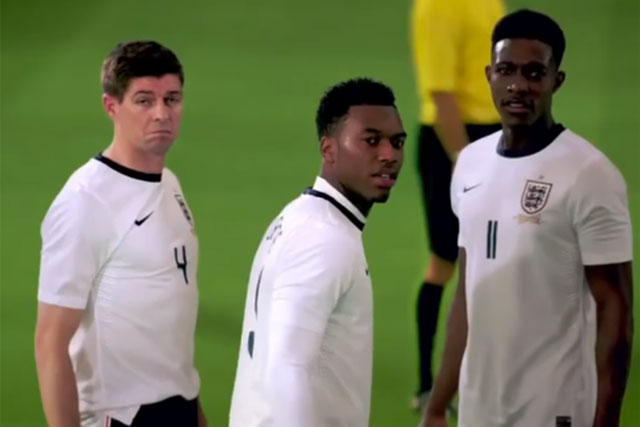It is only a matter of days until the World Cup. Everywhere you turn you are met with tub-thumping, rabble-rousing, crowd-pleasing patriotism. Every TV ad; every viral video; every point of sale; every tabloid headline tells you that maybe, just maybe this is England’s year.
Only this year, they don’t. A near 50 years of hurt have taken their toll. There are no flags flying. No emotive calls to action. No media-led battle cries. The silence is deafening. For the first time in living memory, even the most ardent English fan doesn’t believe. We are a football nation without hope.
Ok. So I’m exaggerating for effect but the reality is that for marketers, the scenario is problematic.
The draw of the World Cup has always been its ability to create aspiration. Brands could ride on the wave of pre-tournament optimism, align themselves with the ambitions of an expectant public, and ultimately drive the desirability of their product.
Take all that away and what are you left with? The best result in theory is a youthful England squad, tagged with that career death-knell of a word – ‘potential’, delivering a commendable performance to scrape through their group before falling in the early knockout rounds. Hardly the pre-tournament Hollywood script marketers are used to.
Substantial heritage
So what to do? For some marketers, those with substantial heritage and committed long-term investment in football, you get your head down and carry on. The multi-market advertising campaigns from the likes of Adidas, Coca-Cola, Nike, and Pepsi are in place as per usual. After all, the World Cup dream is still alive in other countries. Look closely though and there is a feeling that the activation message in the UK has been tempered down in line with the expectation-less feelings of its consumer base.
Look closely and there is a feeling that the activation message in the UK has been tempered down in line with the expectation-less feelings of its consumer base..
The biggest missing piece of the jigsaw however is not from the sport’s global sponsor base but from those from the outside looking in. The brands for whom a World Cup summer is a national media moment. A time when football unites the nation rather than dividing it. These brands are notorious by their absence. A quick gauge of the English pulse has told them to give it a miss this year.
This is a mistake. The best thing about football, and indeed sport, is its glorious unpredictability. Yes it is unlikely. Yes there is no theoretical chance of it happening. But what if the tide turns? If the English kids turn it on in Brazil and win their opening game against the Italians?
In this set of circumstances, the reaction can be predicted. The patriotic fervour will return. The flags will be out. The media headlines will shout ‘ENG-GER-LAND’. The aspiration, so eroded over decades, will only take a moment to be reborn.
Only those brands who have thought about this chain of events will be in a position to take advantage. Marketers who have flexibility in their planning processes and have allocated substantial budget to the best communications channels for a rapid response – PR and social media. They will thrive and take home the spoils. And if that doesn’t happen, then what have they lost? Nothing.
The marketing truth of a World Cup is that, even when everything points to nothing, there is always hope.
Drew Barrand is associate director at Pitch @ @


